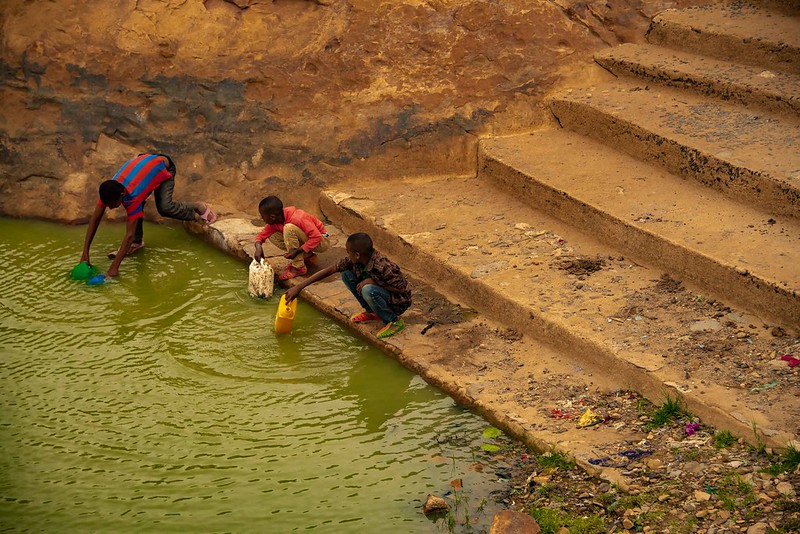Water scarcity and unequal water access are two pressing problems facing the global community. The political response to this crisis has created the field of water politics. In order to address this crisis, the global community must consider water as a human right and prioritize implementing sustainable solutions for the future.

The Problem
Water is one of humans’ basic needs. However, every continent has regions experiencing the effects of water scarcity. With experts predicting that one in five people will live in areas with unsatisfactory resources to meet water needs by 2025, this is an urgent issue.
Although water is a renewable resource, restored by snowmelt and rainfall, human practices are depleting the world’s water supply. Diverting water for agriculture, households and industry has become so taxing that some of the largest rivers run dry before reaching the ocean. Human activity can also pollute water sources to such an extent that they cannot support aquatic life or be used as drinking water.
Water Scarcity and Conflict
Water Politics Limited, a geopolitical risk advisory and consulting firm, found that water scarcity could lead to conflict or political instability in many countries. Sources including the Euphrates, Tigris, Jordan, Nile, Danube and Okavango rivers as well as the Tibetan watershed and resources will become insufficient to support the surrounding areas. These sources currently provide water to dozens of countries across Europe, the Middle East, Asia and Africa.
Water scarcity will therefore affect communities across the globe. Importantly, it may spark conflict over remaining water resources, within a nation or even between nations. Anya Groner at The Atlantic points to evidence of past conflicts that have revolved around water. These include the riots in Cape Town, South Africa, in 2012, which responded to inequality in the distribution of water resources.
The Pacific Institute put together a timeline of water conflicts from the earliest records until 2019. Causes of these conflicts include territorial disputes, drought, inequities and municipal water cuts. The severity of conflict may range from protests and theft to more violent killings and bombings. This makes it clear that decreases in water access may lead to political or violent conflict if the world does not take action to ensure sustainable, equitable water access for all.
Water Politics: Managing the Resource
Countries facing water scarcity have the difficult task of allocating a limited resource. To ensure that everyone can access water, these countries must take many different steps. Cape Town, South Africa, is an apt case study. In 2018, a combination of a dry climate, a three-year drought, and high water usage all put the city within 90 days of running out of water. The severity of this crisis required the whole region to pull together to decrease their water usage.
To avoid turning off the taps, the government restricted residents to 50 liters of water a day. Violators faced large fines for overusing water. Further, the government banned wasteful activities like refilling swimming pools and washing cars. Residents also took to social media to share tips about saving water. Specifically, the “if it’s yellow, let it mellow” campaign emerged to encourage everyone to resist flushing when applicable.
Social media, however, was not just useful as a tool to disseminate information and motivate residents to conserve water. Perhaps more importantly, it also drew the global community’s attention to the state of the world’s water resources and the consequences of water scarcity. The Environmental Protection Agency has also used social media to inform the public about the value of safe drinking water. The agency aims to get users to create their own water conservation campaigns to implement into their communities.
Technology and Water Politics
However, awareness about this issue cannot solve it on its own. Innovators around the globe have engineered new ways to collect freshwater and provide clean water to communities worldwide. These solutions may be as simple as rain barrels used during monsoon season in Vietnam, or as complex as a nylon net hoisted into low clouds to collect condensation in island nations. Technologies like desalinization and iodine tablets have also helped transform water sources into safe drinking water.
Additionally, Water Politics Limited is conducting research on how to maximize water access through political action. It is investigating water transport and pipeline initiatives, exporting water, worldwide water rights and public participation in water conservation.
Moving Forward
As nations move forward with water politics initiatives, we must pay attention to regions most at risk of experiencing severe water scarcity. Places like sub-Saharan Africa with dry climates have already been plunged into prolonged droughts, facing political conflict as a result. Thankfully, public awareness campaigns, technological innovations and governmental cooperation can ensure that everyone has a right to safe drinking water.
– Ellie Williams
Post a Comment